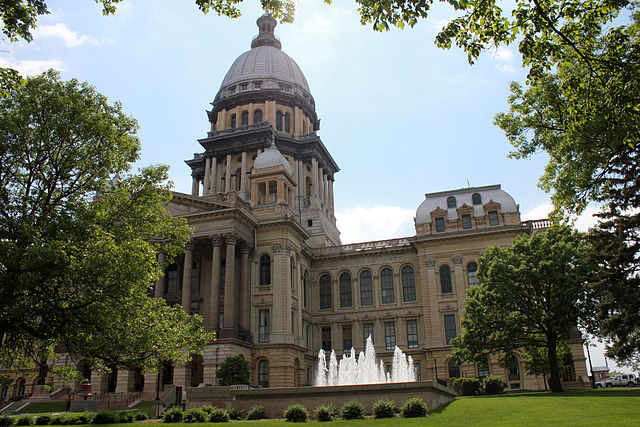Ty Fahner, president of the Civic Committee of The Commercial Club of Chicago and former Illinois attorney general, has been pushing Illinois lawmakers for months to come up with a “Plan B” for pension reform.
He contends that it’s likely the Illinois Supreme Court will overturn the state’s pension reform law. And if it does, Illinois has no contingency plan in place.
In a column in the Belleville News-Democrat, Fahner says of pension reform: “no issue of greater importance to Illinois’ future”. He writes:
What if?
It’s the single most important question that Illinois residents should be asking, and candidates for office should be answering.
Yet as Election Day approaches, too few are asking about the most critical issue facing the state.
What if the Illinois Supreme Court rejects pension reform?
Illinois needs an open and honest conversation about the potential impact this decision could have on the state and its citizens. Regardless of the outcome, the consequences are far-reaching and voters deserve to know whats at stake.
This is about what is good for the state and its future. Illinois needs to be in a position to grow its economy, create jobs for Illinois residents, invest in education and infrastructure and provide for the most vulnerable among us. The pension law decision will have a sweeping impact that will touch every Illinois resident in one way or another.
Illinois can no longer kick the can down the road. Half measures will not suffice. We need to address these issues now. Even if the law is upheld, we are still lagging virtually every state in the nation. All of the answers to these questions will take time to develop, win approval from the General Assembly and implement. Many of the social services already have been cut to the bone and educational funding reduced by $2.7 billion since 2009 — what is the plan?
[…]
With the future of pension reform hanging in the balance, now is the time to ask the question.
What if?
No issue is of greater importance to Illinois’ future.
And if the Supreme Court does reject the state’s pension reform law, Fahner writes:
If the court rejects the law, $145 billion in state contributions is immediately added to the taxpayer tab over the next 30 years. Whether through even more tax hikes or continued service cuts, that money has to be accounted for. We would pay a lot more for a lot less in return.
Property taxes could rise to the highest in the nation. School districts could face further budget strain. Tens of thousands of seniors, children and mentally ill could face significant reductions, if not loss, of the state assistance on which they rely. The security of the pension systems themselves would be jeopardized.
Illinois needs this conversation. The sad truth is that all of the state”s biggest problems are directly tied to the pension crisis, which has already resulted in paralyzing tax hikes, steep cuts to social services, unreasonable burdens on students and the loss of jobs to neighboring states. Already, Illinois ranks last or near last among the states on every economic indicator from unemployment, to property taxes, to jobs climate and state support for education.
Read the entire column here.

